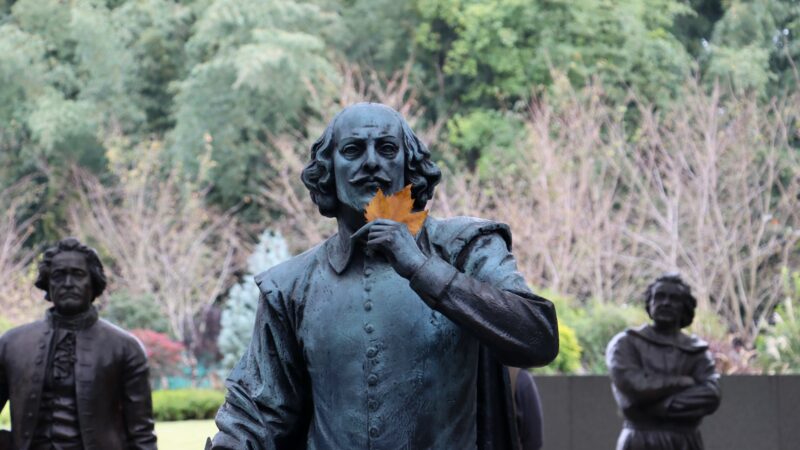British cultural critics, in my opinion, suffer from an insularity which prevents them from connecting the events of their own country to any wider patterns of civilisation. This is truest for those who are the most correct with their criticisms. Take for example Theodore Dalrymple, whose 1998 article Uncouth Chic in the City Journal was prophetic in diagnosing a distinctly British pathology. I give a lengthy quote to showcase the depth of his description:
“The signs — both large and small — of the reversal in the flow of aspiration are everywhere. Recently, a member of the royal family, a granddaughter of the queen, had a metal stud inserted into her tongue and proudly displayed it to the press. (…) Middle-class girls now consider it chic to sport a tattoo — another underclass fashion, as a visit to any British prison will swiftly establish. (…) Advertising now glamorizes the underclass way of life and its attitude toward the world. Stella Tennant, one of Britain’s most famous models and herself of aristocratic birth, has adopted almost as a trademark the stance and facial expression of general dumb hostility to everything and everybody that is characteristic of so many of my underclass patients.”
Dalrymple lays the blame for this “uncouth chic” on moral relativism: “… since nothing is better and nothing is worse, the worse is better because it is more demotic.” This much may be true, but it sidesteps an important matter. There’s an area where the British remain elitists: money. Whatever relativism now reigns upon our morality, it has areas of preferred emphasis. With manners we are relativists, but with cash we are a nation of absolutists who think being rich is better than being poor. Indeed, the very need to transform the uncouth into a type of chic (a word meaning sophisticated and fashionable) betrays such a mindset. Nobody is demanding unfashionable uncouth trash.
To be an elitist about your wallet and a vulgarian about your manners. I wager this combination isn’t accidental but vital. The latter flows from the former.
The Greek philosopher Aristotle, who defines a lot of things near-finally, defines an oligarch as someone who is both wealthy and has a wealth-based idea of goodness. That is, an oligarch isn’t just rich; he thinks being rich is identical with being good. This is why he thinks only the rich should hold political office, for example. So, it’s not that money is the root of all evil and the rich the wickedest. The one who has his character in order only benefits the more money he has, because he understands money as a tool for acquiring other goods. The oligarch grasps for money like an idolum and hates anybody who doesn’t have it.
But why does the oligarch think this? Hasn’t he observed all the good poor people in the world? Is he blind to the honest pauper? Aristotle’s answer is simple: the oligarch thinks money equals goodness because he thinks living well is gorging every appetite with no limit. “For where enjoyment consists in excess, men look for that skill that produces the excess that is enjoyed”[ii]. In other words, if the good of life is endless pleasure, and endless pleasure needs endless money to buy it, the good of life requires endless money. Those without money are unable to get endless pleasure, so the oligarch looks down on their lives as inferior.
The collection of norms we call “etiquette” or “manners” have emerged organically over a long period. Some are obviously arbitrary or meant to exclude people unjustly (the outmoded and snobbish dress code of “no brown in town” comes to mind). But a great many are there to limit personal behaviour, to channel action into a disciplined pattern.
Why chew with your mouth closed? Because it shows consideration for your fellow diners. Why take small bites? Because it controls you to eat at a healthy pace. Why not deliberately get drunk? To not impair your reason. Why avoid constant use of foul language? To show that your mind dwells on higher things than bodily functions. In all these there’s a standard of excellence, mental or physical, drilled into the person through control of their actions.
It’s a principle properly summarised in a line from Confucius: “Therefore the instructive and transforming power of ceremonies is subtle; they stop depravity before it has taken form, causing men daily to move towards what is good, and keep themselves farther apart from guilt, without being themselves conscious of it.”.
Is there then any reason for an oligarch to cultivate manners? I think none of weight. An oligarch might make a show of good manners, if he thinks this displays wealth. But once the cultural association of money with good manners is gone, he’ll stop this act. An oligarch who sees money as the means to swelling himself with pleasure actually has an incentive not to cultivate manners. Why would he cultivate something designed to limit his appetites? If the purpose of eating is to shovel as much food into your mouth as possible, and not to nourish yourself, then you can dispense with the cutlery, even possibly the plate.
But this leads to a further thought. Money for its own sake is necessarily vulgar because any constraint on it points to a standard other than pleasure. If we accept that the manners and etiquette we call aristocratic have developed over time as a way of disciplining wealth into excellence, then an oligarchy engorged on pleasure must reject them. Rather, manners that the underclass have adopted out of lack of correction or poverty now become the fascinations of the rich. A poor man wears ragged jeans because he can’t afford anything else. An oligarch wears designer torn jeans because money compels him to wear whatever he wants however he likes it. The expression of “general dumb hostility” which Dalrymple notes, may have been born from the Hobbesian nightmare of a slum; but for an oligarch, it’s the hostility of wealth to any external correction.
In an oligarchic society the top and bottom begin to resemble each other in customs even as they drift apart in income, and even as the top despises the bottom. We may explain the vulgarity of British elites in terms of class guilt, demoralisation, or political posturing. But the issue remains that love of gold doesn’t protect you from barbarism. It’s the passion that unites the highest emperor with the coarsest bandit.



